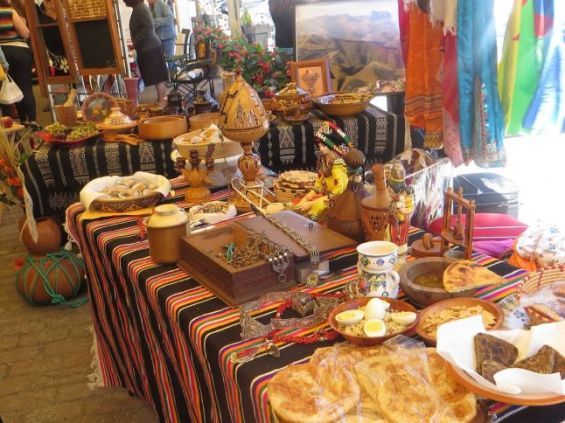Berbers in North Africa celebrate every year Yennayer, the first month in the agrarian year, from the 11th to the 13th of January. Today in Morocco, the celebration marks the beginning of a new year, 2968, an opportunity to shed light on this cultural occasion. For Ahmed Boukous, director of the Royal Institute of the Amazigh Culture (IRCAM), «the Amazigh society has created a culture that celebrates the strong relationship linking mankind to nature».
Celebrating Yennayer, according to the Amazigh activist, is a way of recognizing our identity and our shared history. In fact, the Berber calendar starts, based on historical accounts, when the Amazigh pharaoh Sheshonq I took the throne and became ruler of ancient Egypt.
Boukous recalls that «the Amazigh new year is valuable for the anthropological significance it carries». He also believes that celebrating, commemorating this date and recognizing its national importance is just «fair and logical».
Celebrating Yennayer in Morocco and around the world
For many Moroccans, Yennayer is first and foremost an opportunity to meet friends and family members and to celebrate the Amazigh cultural heritage. «Sfenj» (donuts), «toghrifin» (pancakes) and dried fruits such as figs, almonds, hazelnuts, and dates are a must for those who join in the celebrations.
Kaoutar, a student from Agadir, is definitely celebrating the New Year. Speaking to Yabiladi, the young woman is traveling to Tiznit to see her parents, prepare and eat «Tagoulla», a meal made from corn and wheat grains.
Meanwhile, Salima, an Agadir native student living in Virginia, USA told Yabiladi that she is «proud to be an Amazigh» all while denouncing how the festival is neglected in Morocco. «Dinner that day must be served at a late hour and must be rich, as a sign of prosperity for the New Year,» she explained.
For the young woman, currently in some parts of Morocco, the celebration of Yennayer has lost its freshness and authenticity. Salima, however, wishes that one day Yennayer would be recognized as a «national holiday in Morocco».
On the 27th of December, 2017, Algeria’s president, Abdelaziz Bouteflika, recognized Yennayer as a public holiday to be celebrated on the 12th of January every year.





 chargement...
chargement...













